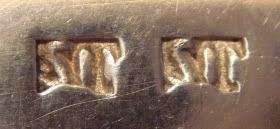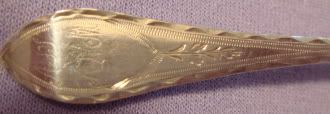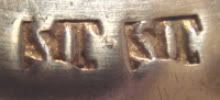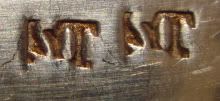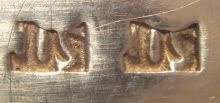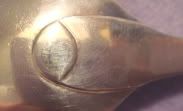Thanks, Hose, and also Qrt.s... I think we shall never know the "truth" about these spoons. If the two of you, who I can see are very knowledgeable about Scandinavian silver, cannot tell me, I doubt that anyone else can, either. I have learned a lot from you, and I'm grateful for your posts!
I did look at the offers for the Baltic silver book and it appears quite interesting, and available in Europe. At some point, I may acquire it. Is there a book you can recommend for Scandinavian silver (other than the small ones which have nice pictures but not a lot of information)? I would also be interested in something that covers German (and to some extent Austro-Hungarian) silver as well. I know about Rosenberg, but both the price and availability make that one almost out of reach. Hose, what did you mean when you referred to the 'Theo homepage?' I have read about the captain's spoons but have never seen one. There was a discussion of them in this very interesting (largely English) site:
http://www.bexfield.co.uk/thefinial/" onclick="window.open(this.href);return false;
The final thing that has occured to me about the spoons is the vague possibility that they are American made. I have heard -- but never knowingly seen -- that in the regions that were settled by Scandinavians (Minnesota, Wisconsin, Michigan, and some in other regions) that there were silversmiths who came as immigrants, and although they became farmers or tradesmen, they occasionally made silver for their fellow expatriates, using the familiar Scandinavian styles. The American marking system (before ca. 1870) had almost no controls and any kind of marking could be present or absent. But I have never seen such silver, so I don't know about this. These were not made in any of the usual American centers (New York, Boston, Philadelphia) where there would have been more conformity to the prevalent styles based on mostly English aesthetics, and these definitely do not fit. But I think I can't with certainty rule out a remote area.

